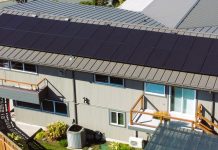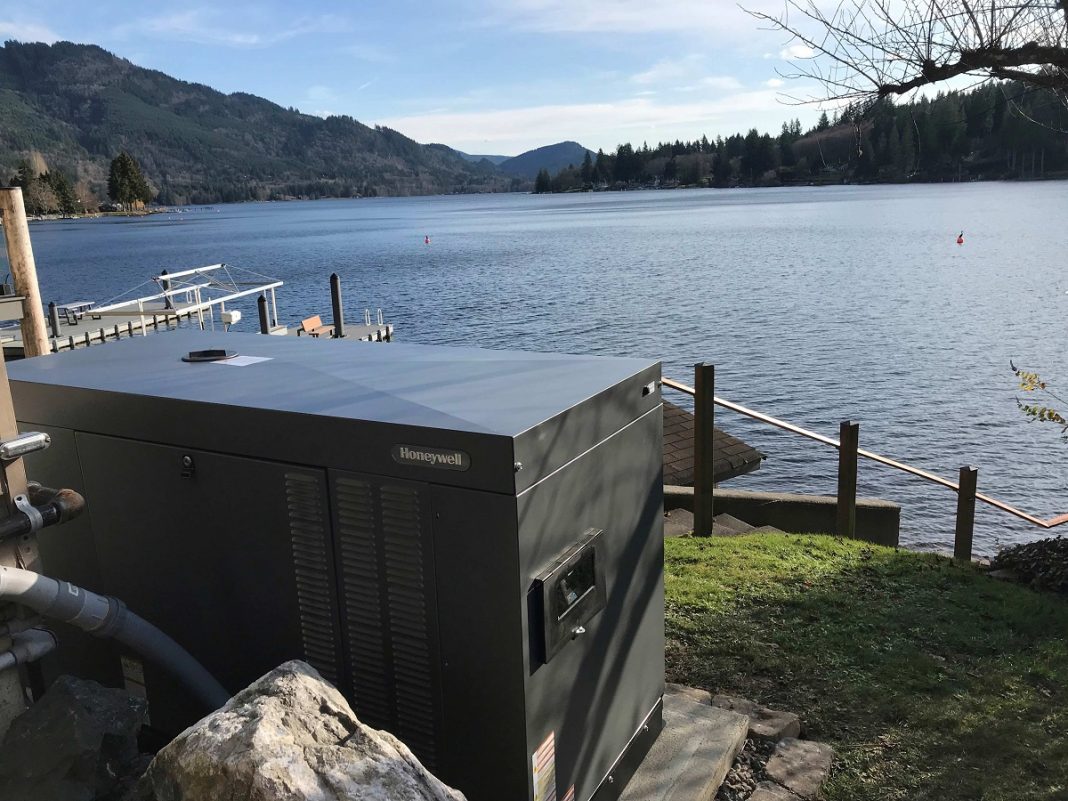Submitted by Barron Heating AC Electrical & Plumbing
Heavy rain and high winds seem to be the norm lately in our corner of the world. Downed limbs, overturned garbage cans, flickering lights…you know the drill. Storm after storm leads to power outage after power outage—or at least the threat of one—and the battle gets so tiring.
This time of year, a power outage means more than just an evening spent by candlelight. With subfreezing temperatures outside, an outage can mean no heat, leading to temperatures plummeting inside your home as well. And from frozen plumbing lines to warm water access, extended outages can be a real problem for you and your home.
If you’re looking to produce electricity on demand, generators are a wise choice. Most fall into one of two categories: portable generators or whole-house generators (also known as standby), installed by a professional. But while they both provide a similar outcome, they are vastly different in many ways, from ease of use and convenience to fuel usage and safety.
Portable generators—the ones you typically see at big box hardware stores—commonly run on gasoline, but a smaller percentage can run on natural gas, propane, or diesel fuel. They tend to be noisy, while producing less power than whole-house systems, and need to be stored—preferably somewhere that can be quickly accessed when needed. Most portable units require a manual start-up, meaning when the power goes out, the generator needs to be pulled from storage and placed outside, away from your home (but protected from the elements!), then either connected to your circuit breaker or to extension cords that run inside to your appliances. Size and power output of portable generators vary, but it’s common for such units to only power a few appliances at a time.
Whole-house generators, on the other hand, are largely self-sufficient, with enough strength to power your entire home. If you happen to be out of town when the power goes out, you can rest assured that you won’t return to a refrigerator of spoiled food or a flooded basement caused by a failed sump pump. Fueled by natural gas or propane, your standby unit will automatically fire up when it senses an outage, granting you peace of mind with minimal interruption to your day.
Peace of mind doesn’t just stem from the automation of a whole-house generator. Safety is an essential benefit as well. Carbon monoxide poisoning due to engine exhaust is a serious risk with misuse of portable units. Some portable generators feature an auto-shutoff that is triggered when high CO levels are sensed—a welcome new safety feature. But gaps in these features can potentially be life-threatening, reinforcing the importance of safe operation and close monitoring of portable units.
Ready to equip your home for the dark days ahead? Barron Electrical, a division of Barron Heating AC Electrical & Plumbing, is here to help. As a Full-Service Generator Contractor, our team of professionals installs the industry’s best brands of whole-house generators, and takes on all the legwork, from providing a composite pad for the generator to sit on, to performing all electrical work; pulling all permits required for your installation, to working with the power company if needed. Our team only services generators we install, giving priority service to our customers, and our certified technicians can perform warranty work when necessary.
So, prepare your home now and love your light when the block goes dark. Call Barron Electrical for a free estimate and learn about flexible payment options to install a whole-house generator today. For a limited time, you can save up to $1,500 on a WholeHome generator with a Silver Shield Membership. We’ll provide you with peace of mind that your home’s lights, heat, water, and refrigerator will be kept on, no matter what the weather brings. As your Pacific Northwest home and building performance experts since 1972, we stand by our mission of improving lives.




































